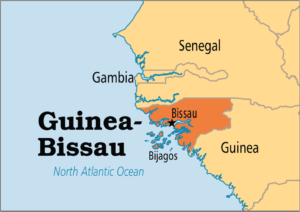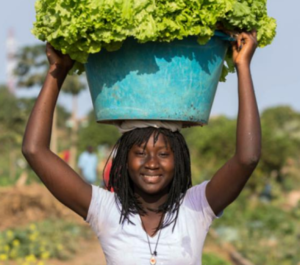 There was a Portuguese Jewish presence in Guinea-Bissau from the 16th century. Portuguese King Manuel I made reference to a group of Lançados; most of these were Portuguese Jews who had been deported. The term Lançados, derived from the Portuguese verb “to throw out,” is related to their outcaste or fugitive role in Luso-African coastal commerce.
There was a Portuguese Jewish presence in Guinea-Bissau from the 16th century. Portuguese King Manuel I made reference to a group of Lançados; most of these were Portuguese Jews who had been deported. The term Lançados, derived from the Portuguese verb “to throw out,” is related to their outcaste or fugitive role in Luso-African coastal commerce.
Figuratively the term lancados means “outcastes.” They were usually fugitive Portuguese settlers including those exiled degredados following their conviction for some political “crime” as was the case for Jews following the full-scale Portuguese Inquisition in 1536.
 In the late sixteenth century, the Lançados, fled the Portuguese Inquisition for the coastal villages of modern-day Guinea-Bissau and built a lucrative business in contraband weapons, ivory, hides, gold, and wax.
In the late sixteenth century, the Lançados, fled the Portuguese Inquisition for the coastal villages of modern-day Guinea-Bissau and built a lucrative business in contraband weapons, ivory, hides, gold, and wax.
They intermarried with the local population and protected them from the Inquisition. Due to assimilation, the Lançados disappeared into history. There is no Jewish infrastructure in Guinea-Bissau, however a number of businessmen live there to support their commercial enterprises.
A group of 12 Jewish men living in Guinea-Bissau attended the Maccabiah games in Israel with the express purpose of raising money for mosquito nets. Thousands of children die of malaria before the age of five. Buying $10 mosquito nets can help save lives. The team wants to leave the world in a better place by helping to save lives – “tikkun olam”.